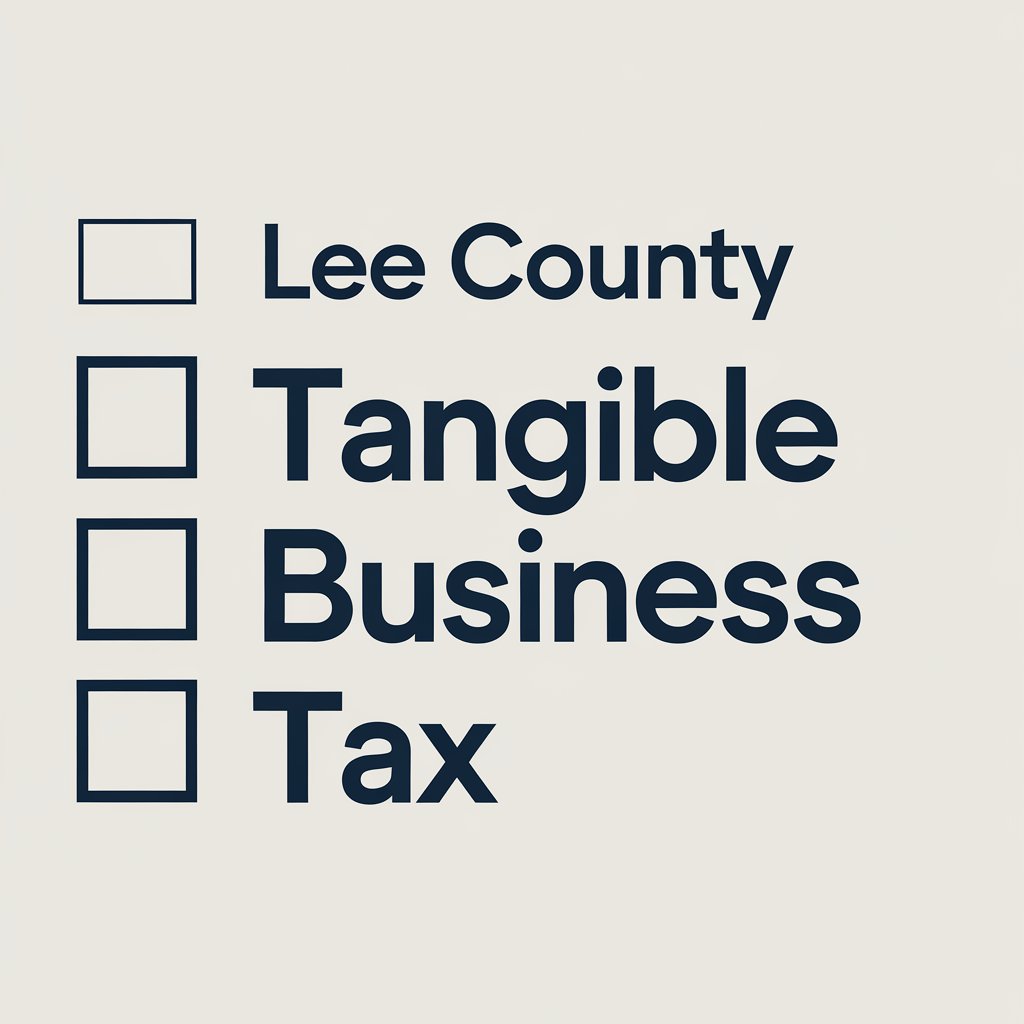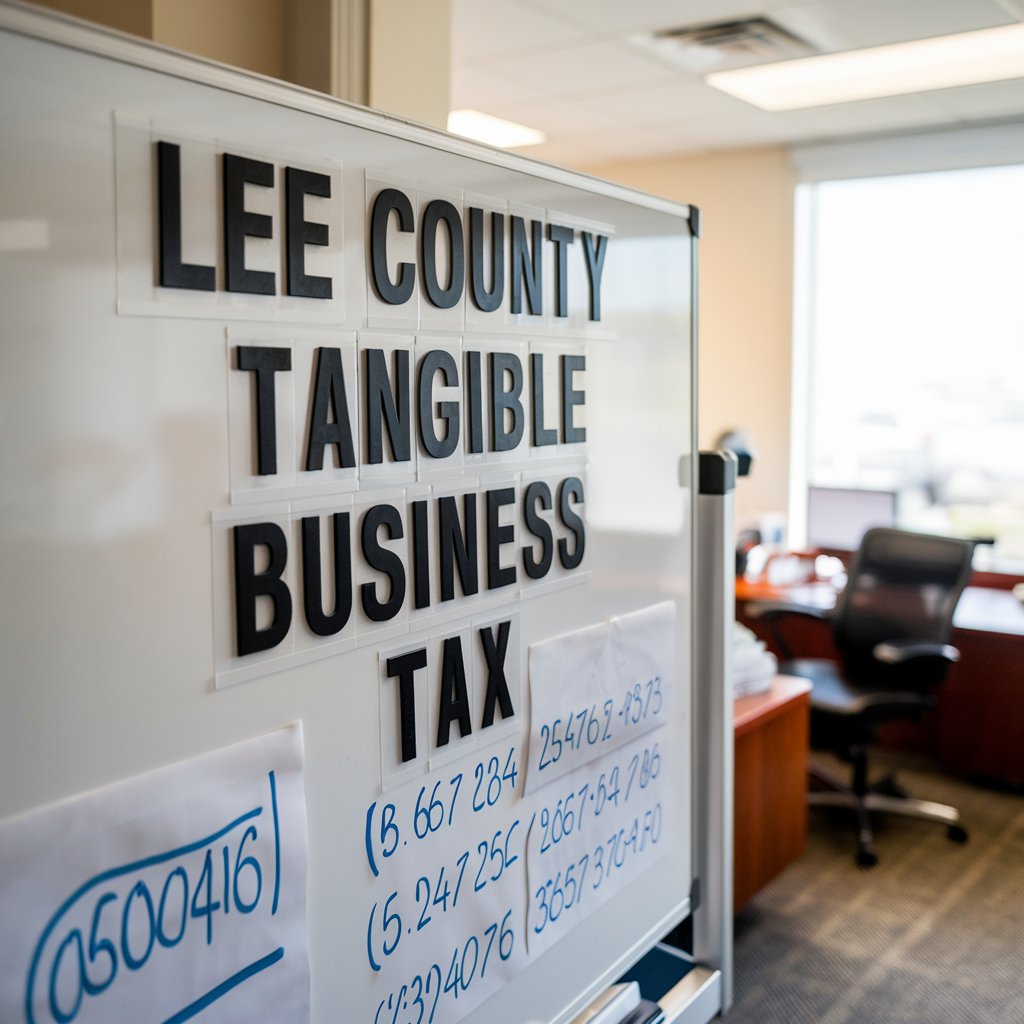Lee County Tangible Business Tax is an important topic for any business owner in Lee County. This tax applies to businesses that own physical items, like machinery, office furniture, and vehicles, which are used for business purposes. Knowing how this tax works helps you avoid penalties and ensure that you’re paying the right amount.
If your business owns tangible property, you may need to pay this tax. The Lee County Tangible Business Tax is different from property taxes on land or buildings. This tax applies to things like office furniture, vehicles, and equipment that businesses use in their daily operations. Understanding how to calculate and file this tax is essential for smooth business operations in Lee County.
What is Lee County Tangible Business Tax and Why Does It Matter?
Lee County Tangible Business Tax is a tax that businesses in Lee County must pay if they own certain physical assets. These assets are items used in business operations, like equipment, furniture, and vehicles. This tax is important because it helps the county collect funds to support public services. By understanding the tax, businesses can avoid penalties and stay compliant with local laws.
For businesses, this tax is different from property tax because it focuses on movable assets. Knowing what is taxable and how much you owe can be tricky, but it’s necessary to ensure you don’t miss out on important payments. Always remember that this tax applies to both large corporations and small businesses, so it’s important for all business owners in Lee County to be aware of their obligations.
How Lee County Tangible Business Tax Affects Your Business

The Lee County Tangible Business Tax impacts every business that owns physical property. If your business uses machines, office furniture, or delivery vehicles, you are likely responsible for this tax. Understanding how this tax affects your financial planning can help you budget more effectively. It’s a good idea to keep track of all your tangible assets so you can accurately calculate your tax liability.
This tax can also influence business decisions. For example, when purchasing new equipment or upgrading existing property, business owners need to consider the potential tax impact. Being aware of these factors will help businesses manage their tax obligations while maintaining smooth operations.
Who Needs to Pay the Lee County Tangible Business Tax?
Any business in Lee County that owns physical property must pay the tangible business tax. This includes corporations, sole proprietors, partnerships, and LLCs. If your business has items like office equipment, machinery, or vehicles, you need to report them for tax purposes. Whether you are a small startup or a large corporation, it’s important to know your tax responsibilities.
Even businesses that may not have significant assets are still required to report them. For example, a small business with a few computers or office chairs must also file the tax if those items meet the criteria. If you are unsure whether your property is taxable, it’s best to consult a tax professional.
Step-by-Step Guide to Calculating Lee County Tangible Business Tax
Calculating your tangible business tax in Lee County involves several steps. To begin with, you really want to decide the worth of your property. This includes all the machinery, furniture, and vehicles your business owns. The Lee County Property Appraiser will assess the value of your property based on factors like age and condition.
Next, you apply the millage rate to the assessed value. This rate is set by the area and is communicated as dollars per $1,000 of evaluated property estimation. For example, if your property is valued at $100,000 and the tax rate is 10 mills, your tax would be $1,000. Finally, it’s important to file your tax return before the deadline to avoid late fees.
Common Items Taxed Under Lee County Tangible Business Tax
Here are some of the common items taxed under the Lee County Tangible Business Tax:
- Machinery and Equipment: Items like manufacturing machines, computers, and vehicles used in daily operations.
- Furniture and Fixtures: Office chairs, desks, shelves, and similar office furnishings.
- Inventory: Goods that are held for sale or used in production.
Understanding which items are taxable is key to managing this tax. Keeping accurate records of your tangible assets helps you avoid paying unnecessary taxes or missing out on any taxable property.
Understanding Exemptions for Lee County Tangible Business Tax
Lee County may offer exemptions for certain types of tangible property. These exemptions can reduce the amount of tax you owe. To qualify for an exemption, your business property must meet specific criteria outlined by the Lee County Property Appraiser’s office.
Some examples of exemptions include certain machinery or equipment used in manufacturing. Be sure to check with the county’s property assessor to see if your business qualifies. Consulting a tax professional is a good way to ensure you are aware of all exemptions available to you.
How Lee County Assesses the Value of Your Tangible Property

The value of tangible property in Lee County is assessed by the Property Appraiser’s office. They evaluate the property based on factors like market value, age, and condition. This is important because the assessed value directly impacts the amount of tax you will owe.
The Property Appraiser may use depreciation schedules to account for the aging of equipment. The goal is to determine a fair value for your assets, which will then be taxed. It’s important for business owners to keep records of their assets to ensure the correct valuation.
What Happens if You Miss the Lee County Tangible Business Tax Deadline?
Missing the Lee County Tangible Business Tax deadline can result in penalties and interest charges. It’s important to file and pay your taxes on time to avoid these extra costs. Penalties can add up quickly, especially if you fail to file your tax return.
If you miss the deadline, you can still file your taxes, but you may need to pay additional fees. Always make sure to check the official Lee County website for the exact deadlines and file your taxes as early as possible to avoid penalties.
Conclusion:
Understanding the Lee County Tangible Business Tax is important for any business owner in the area. By knowing what items are taxed, how to calculate the tax, and what exemptions might be available, businesses can avoid penalties and stay on the right track. Keeping accurate records and paying your taxes on time will help your business stay organized and compliant.
If you’re unsure about anything, it’s always a good idea to ask for help. Whether you talk to the Lee County Property Appraiser’s office or hire a tax professional, getting the right advice can save you time and money. Don’t forget, paying your taxes properly supports local services, which benefits everyone in the community!




